人教版(2019)必修第一册Welcome unit 单词讲解课件-(25张ppt)
文档属性
| 名称 | 人教版(2019)必修第一册Welcome unit 单词讲解课件-(25张ppt) | 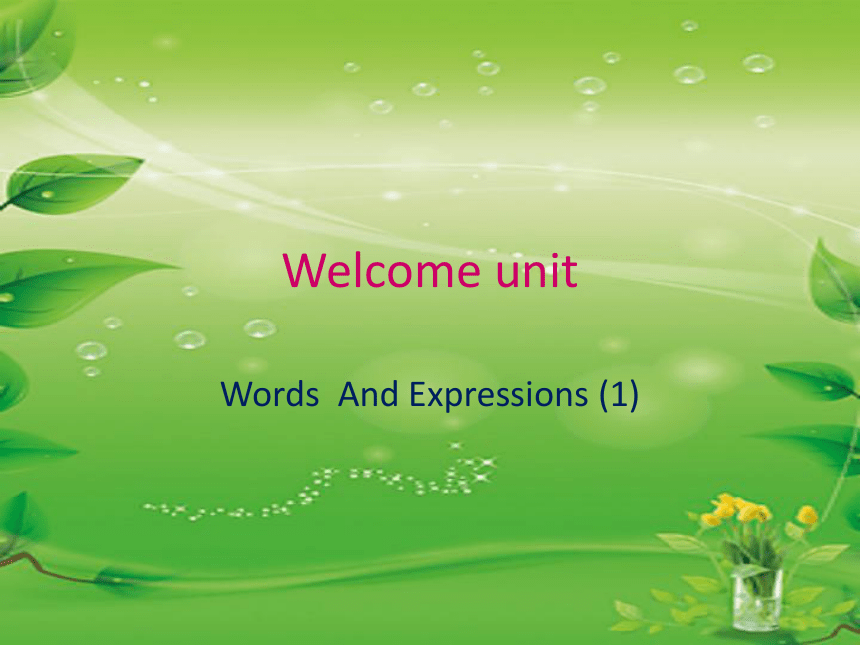 | |
| 格式 | zip | ||
| 文件大小 | 662.1KB | ||
| 资源类型 | 教案 | ||
| 版本资源 | 人教版(2019) | ||
| 科目 | 英语 | ||
| 更新时间 | 2022-08-15 17:43:51 | ||
图片预览

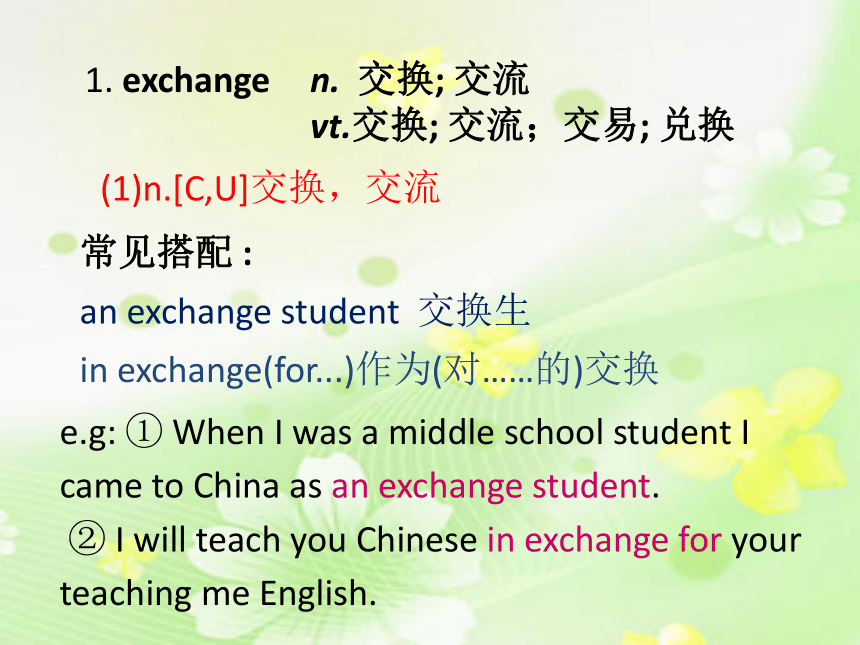
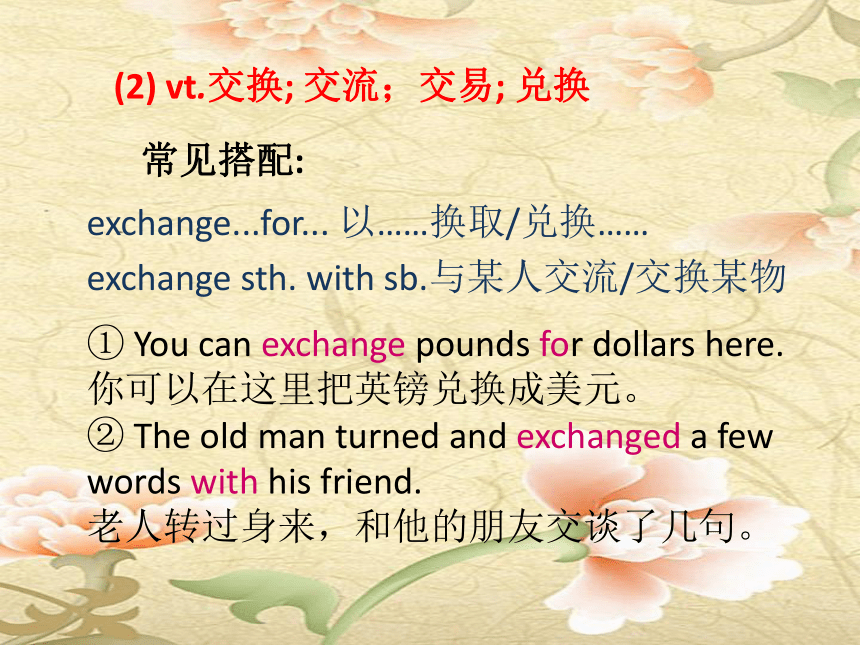

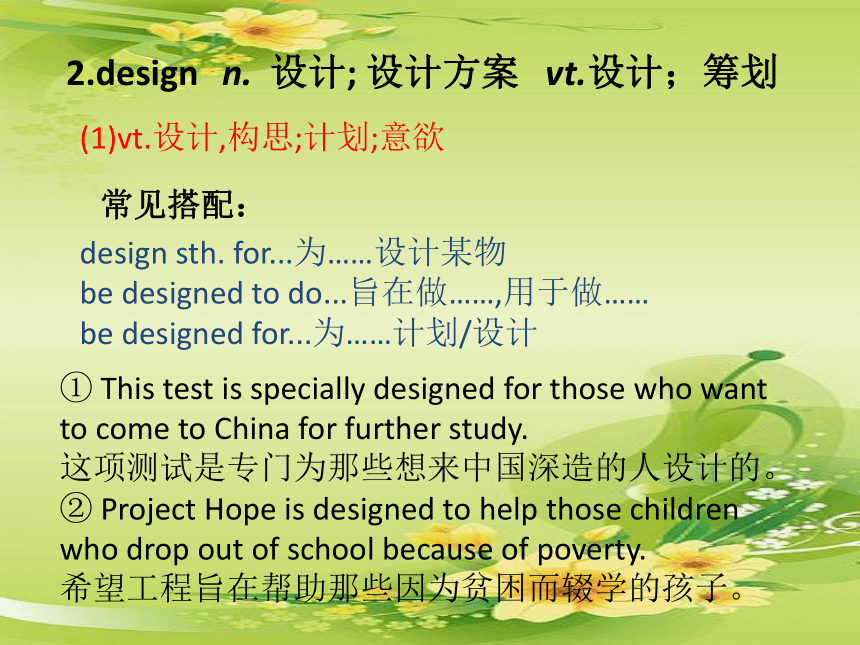
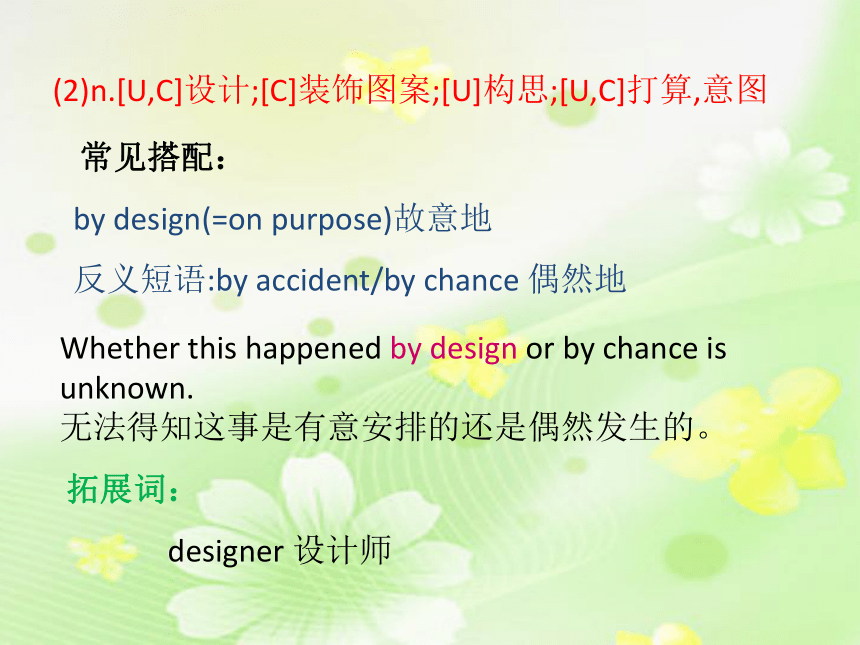
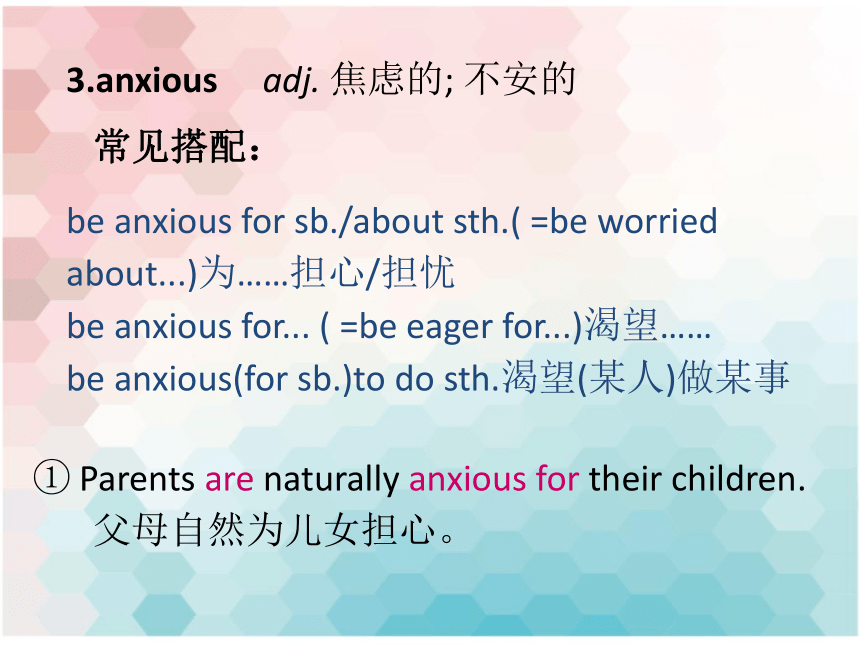
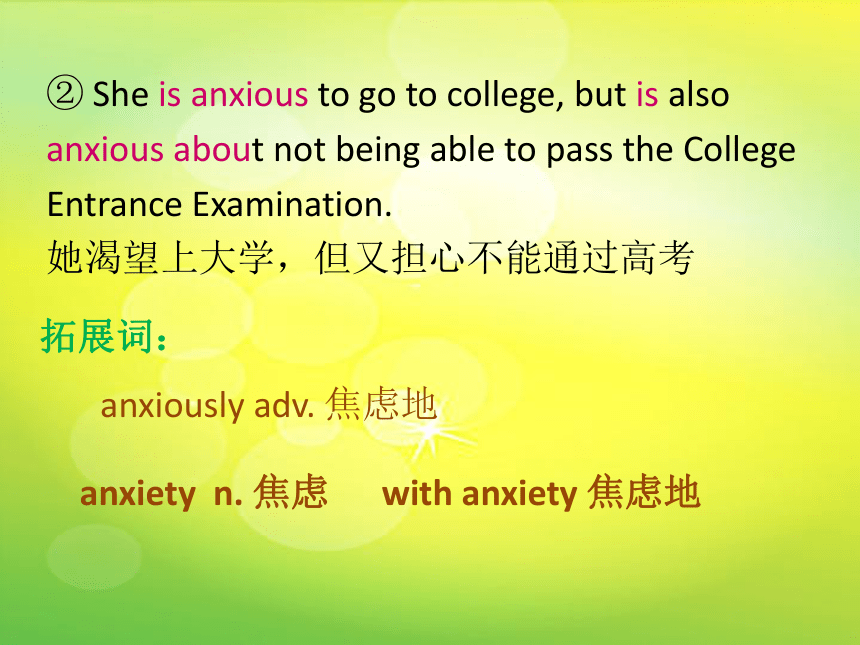
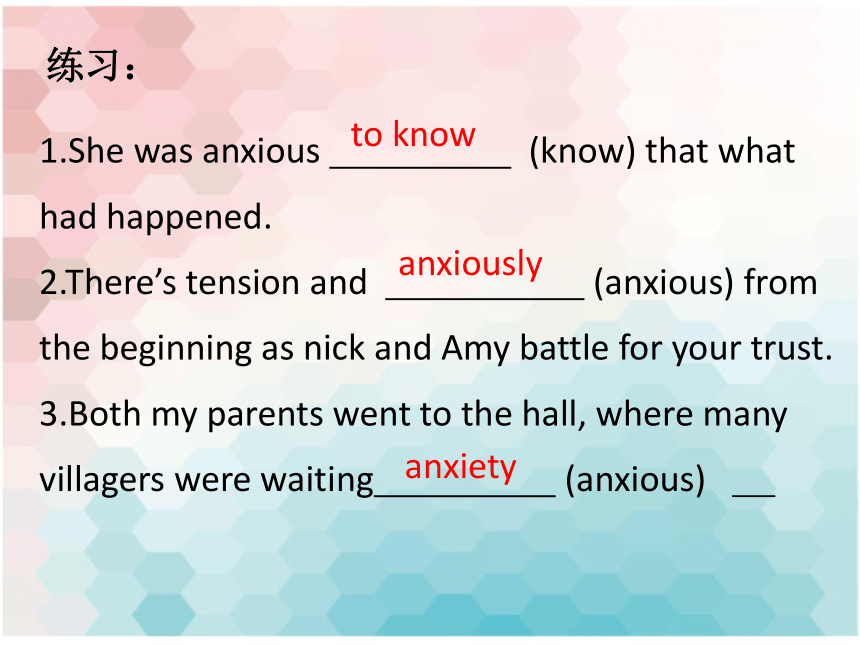
文档简介
(共25张PPT)
Welcome unit
Words And Expressions (1)
1. exchange
n. 交换; 交流
vt.交换; 交流;交易; 兑换
(1)n.[C,U]交换,交流
常见搭配 :
an exchange student 交换生
in exchange(for...)作为(对……的)交换
e.g: ① When I was a middle school student I came to China as an exchange student.
② I will teach you Chinese in exchange for your teaching me English.
(2) vt.交换; 交流;交易; 兑换
exchange...for... 以……换取/兑换……
exchange sth. with sb.与某人交流/交换某物
常见搭配:
① You can exchange pounds for dollars here.你可以在这里把英镑兑换成美元。
② The old man turned and exchanged a few words with his friend.
老人转过身来,和他的朋友交谈了几句。
判断下列句子中exchange的词性及含义。
① Thanks to exchange programmes, an increasing number of foreign students are studying in China.
②Poem lovers read and recite poems that they love and exchange their opinions on poetry.
③We exchanged our e-mail addresses so that we could write to each other in the future.
④ If you go shopping in Canada, don’t forget to exchange your money for Canada dollars.
练习:
n. 交换; 交流
vt.交流
vt.交换
vt.兑换
2.design
n. 设计; 设计方案 vt.设计;筹划
design sth. for...为……设计某物
be designed to do...旨在做……,用于做……
be designed for...为……计划/设计
(1)vt.设计,构思;计划;意欲
常见搭配:
① This test is specially designed for those who want to come to China for further study.
这项测试是专门为那些想来中国深造的人设计的。 ② Project Hope is designed to help those children who drop out of school because of poverty.
希望工程旨在帮助那些因为贫困而辍学的孩子。
(2)n.[U,C]设计;[C]装饰图案;[U]构思;[U,C]打算,意图
by design(=on purpose)故意地
常见搭配:
Whether this happened by design or by chance is unknown.
无法得知这事是有意安排的还是偶然发生的。
反义短语:by accident/by chance 偶然地
拓展词:
designer 设计师
3.anxious
adj. 焦虑的; 不安的
be anxious for sb./about sth.( =be worried about...)为……担心/担忧
be anxious for... ( =be eager for...)渴望……
be anxious(for sb.)to do sth.渴望(某人)做某事
常见搭配:
① Parents are naturally anxious for their children.
父母自然为儿女担心。
② She is anxious to go to college, but is also anxious about not being able to pass the College Entrance Examination.
她渴望上大学,但又担心不能通过高考
拓展词:
anxiously adv. 焦虑地
anxiety n. 焦虑 with anxiety 焦虑地
练习:
1.She was anxious (know) that what had happened.
2.There’s tension and (anxious) from the beginning as nick and Amy battle for your trust.
3.Both my parents went to the hall, where many villagers were waiting (anxious)
to know
anxiously
anxiety
4.annoy
vt. 使恼怒;打扰
用法:
It annoys sb. that … 让某人生气的是……
It annoys sb. to do … 做某事 让某人生气……
归纳拓展:
(1) annoyed adj. 生气的,恼怒的
常用搭配:
be annoyed with sb. 生某人的气
be annoyed at/ about sth. 因某事生气
be annoyed to do sth/ that … ……使人恼火
(2)annoying adj. 令人烦恼的
(3)annoyance n. 恼怒,烦恼;使人恼怒的事
①She was annoyed with me because I was too careless.
她因为我太粗心了而生我的气。
②He was very annoyed at the newspaper report.
他 对报纸上的那篇报道极为恼火。
③He was annoyed to hear that the train would be 40minuteslate.
听说火车要晚点40分钟,他很恼怒。
1.He got at the flies flying around him when he was reading a book.
His showed itself on his face.(annoy)
2. Jerry was annoyed me. He didn't say anything to me all the afternoon.
3.From the (annoy)look of Tom's mother, we knew that she was quite annoyed what he had done.
4. I was very annoyed (find) that the people in wheelchairs couldn’t use the toilet.
annoyed
annoying
annoyance
annoyed
at/about
with
to find
5.frightened adj. 惊吓的;害怕的
它多用于修饰人或人的声音、表情等。
常见搭配
be frightened of(doing)sth.害怕(做)某事
be frightened to do sth.害怕做某事
be frightened to death 吓得要死
be frightened that...害怕……
① I'm frightened of walking home alone in the dark.
我害怕在黑夜里独自走路回家。
② I'm frightened to speak in public.
我害怕当众讲话。
③ I’d never do that. I’d be frightened to death.
我绝对不会那样做。我会被吓死的。
④ She was frightened that the plane would crash.
她害怕飞机会坠毁。
归纳拓展:
fright n.惊吓,恐怖
with/in fright 惊恐地
frighten v.使 恐怖 惊吓,吓唬
frightening adj.引起恐惧的, 使惊恐的,骇人的(多用于修饰物或事)
1.Without anyone to turn to, she felt (frighten).
2.I always want to go to the Yellow Mountain,but I am frightened (travel)alone.
3.Going to the hospital can be a very (frighten) experience for a child.
frightened
to travel
frightening
6.senior adj. 级别(或地位)高的
n.较年长的人
be senior to sb. 比某人年长;
比某人的地位/职位高
My bother Bob is senior to me by two years.
7.impress
vt. 使钦佩;给…留下深刻的好印 象 vi. 留下印象;引人注目
常用搭配:
impress sb. with sth. 使某人对某事印象深刻
impress sth. on sb. 使某人牢记某事
be impressed by / with 对……印象深刻
归纳拓展:
impression n.印象;感想;印记
常用搭配:
a good/bad /deep impression
好的/ 坏的/深刻的印象
the first impression 第一印象
leave / make a(n)… impression on sb. 给某人留下…… 印象
impressive adj. 给人深刻印象的;令人赞叹的
1.Their Chinese peers in the typical Chinese dress would be highly ( impress).
2.Why does it matter that people are more (impress) by the most recent changes
3.Williams was impressed Benjamin and gave him two classic books on painting to take home.
4 . ...he left a deep ( impress) on me and gave me the inspiration to pick up my pen again.
impression
impressed
impressive
with/by
8.what if 要是……会怎么样呢?
What if... "为常用句型What if 后面跟一个完整的句子,且句子通常用现在时或过去时。该句式有如下含义:
(1) 如果…怎么办 是……会怎么样呢 (尤指令人不愉快的事情发生时)
What if the family had simply left the cat behind
如果这家人只是把猫遗弃了怎么办
(2)如果……怎么样 (用于表示提出有益的建议)
①What if you join us for lunch
同我们一起吃午饭怎么样
②What if we move the sofa over here Would that look better
要是我们把沙发挪到这边来会怎么样 那样看上去会不会好一些
9.concentrate vi.& vt.集中(注意力);
聚集会神
concentrate on (doing) sth.
用法归纳:
专心于做某事
concentrate one’s attention on 把注意力集中在…… 上
归纳拓展:
concentration
concentrated
专心;集中;含量;浓度
全力以赴的;集中的;浓度的
10.leave...alone 不打扰;不惊动
leave for 动身去……
leave behind 把……留下
leave out 删掉;漏掉
leave off 停止
leave aside 把……搁置在一边;不考虑
短语拓展:
Please leave me alone for a while so that I can finish the report.
Thanks
Welcome unit
Words And Expressions (1)
1. exchange
n. 交换; 交流
vt.交换; 交流;交易; 兑换
(1)n.[C,U]交换,交流
常见搭配 :
an exchange student 交换生
in exchange(for...)作为(对……的)交换
e.g: ① When I was a middle school student I came to China as an exchange student.
② I will teach you Chinese in exchange for your teaching me English.
(2) vt.交换; 交流;交易; 兑换
exchange...for... 以……换取/兑换……
exchange sth. with sb.与某人交流/交换某物
常见搭配:
① You can exchange pounds for dollars here.你可以在这里把英镑兑换成美元。
② The old man turned and exchanged a few words with his friend.
老人转过身来,和他的朋友交谈了几句。
判断下列句子中exchange的词性及含义。
① Thanks to exchange programmes, an increasing number of foreign students are studying in China.
②Poem lovers read and recite poems that they love and exchange their opinions on poetry.
③We exchanged our e-mail addresses so that we could write to each other in the future.
④ If you go shopping in Canada, don’t forget to exchange your money for Canada dollars.
练习:
n. 交换; 交流
vt.交流
vt.交换
vt.兑换
2.design
n. 设计; 设计方案 vt.设计;筹划
design sth. for...为……设计某物
be designed to do...旨在做……,用于做……
be designed for...为……计划/设计
(1)vt.设计,构思;计划;意欲
常见搭配:
① This test is specially designed for those who want to come to China for further study.
这项测试是专门为那些想来中国深造的人设计的。 ② Project Hope is designed to help those children who drop out of school because of poverty.
希望工程旨在帮助那些因为贫困而辍学的孩子。
(2)n.[U,C]设计;[C]装饰图案;[U]构思;[U,C]打算,意图
by design(=on purpose)故意地
常见搭配:
Whether this happened by design or by chance is unknown.
无法得知这事是有意安排的还是偶然发生的。
反义短语:by accident/by chance 偶然地
拓展词:
designer 设计师
3.anxious
adj. 焦虑的; 不安的
be anxious for sb./about sth.( =be worried about...)为……担心/担忧
be anxious for... ( =be eager for...)渴望……
be anxious(for sb.)to do sth.渴望(某人)做某事
常见搭配:
① Parents are naturally anxious for their children.
父母自然为儿女担心。
② She is anxious to go to college, but is also anxious about not being able to pass the College Entrance Examination.
她渴望上大学,但又担心不能通过高考
拓展词:
anxiously adv. 焦虑地
anxiety n. 焦虑 with anxiety 焦虑地
练习:
1.She was anxious (know) that what had happened.
2.There’s tension and (anxious) from the beginning as nick and Amy battle for your trust.
3.Both my parents went to the hall, where many villagers were waiting (anxious)
to know
anxiously
anxiety
4.annoy
vt. 使恼怒;打扰
用法:
It annoys sb. that … 让某人生气的是……
It annoys sb. to do … 做某事 让某人生气……
归纳拓展:
(1) annoyed adj. 生气的,恼怒的
常用搭配:
be annoyed with sb. 生某人的气
be annoyed at/ about sth. 因某事生气
be annoyed to do sth/ that … ……使人恼火
(2)annoying adj. 令人烦恼的
(3)annoyance n. 恼怒,烦恼;使人恼怒的事
①She was annoyed with me because I was too careless.
她因为我太粗心了而生我的气。
②He was very annoyed at the newspaper report.
他 对报纸上的那篇报道极为恼火。
③He was annoyed to hear that the train would be 40minuteslate.
听说火车要晚点40分钟,他很恼怒。
1.He got at the flies flying around him when he was reading a book.
His showed itself on his face.(annoy)
2. Jerry was annoyed me. He didn't say anything to me all the afternoon.
3.From the (annoy)look of Tom's mother, we knew that she was quite annoyed what he had done.
4. I was very annoyed (find) that the people in wheelchairs couldn’t use the toilet.
annoyed
annoying
annoyance
annoyed
at/about
with
to find
5.frightened adj. 惊吓的;害怕的
它多用于修饰人或人的声音、表情等。
常见搭配
be frightened of(doing)sth.害怕(做)某事
be frightened to do sth.害怕做某事
be frightened to death 吓得要死
be frightened that...害怕……
① I'm frightened of walking home alone in the dark.
我害怕在黑夜里独自走路回家。
② I'm frightened to speak in public.
我害怕当众讲话。
③ I’d never do that. I’d be frightened to death.
我绝对不会那样做。我会被吓死的。
④ She was frightened that the plane would crash.
她害怕飞机会坠毁。
归纳拓展:
fright n.惊吓,恐怖
with/in fright 惊恐地
frighten v.使 恐怖 惊吓,吓唬
frightening adj.引起恐惧的, 使惊恐的,骇人的(多用于修饰物或事)
1.Without anyone to turn to, she felt (frighten).
2.I always want to go to the Yellow Mountain,but I am frightened (travel)alone.
3.Going to the hospital can be a very (frighten) experience for a child.
frightened
to travel
frightening
6.senior adj. 级别(或地位)高的
n.较年长的人
be senior to sb. 比某人年长;
比某人的地位/职位高
My bother Bob is senior to me by two years.
7.impress
vt. 使钦佩;给…留下深刻的好印 象 vi. 留下印象;引人注目
常用搭配:
impress sb. with sth. 使某人对某事印象深刻
impress sth. on sb. 使某人牢记某事
be impressed by / with 对……印象深刻
归纳拓展:
impression n.印象;感想;印记
常用搭配:
a good/bad /deep impression
好的/ 坏的/深刻的印象
the first impression 第一印象
leave / make a(n)… impression on sb. 给某人留下…… 印象
impressive adj. 给人深刻印象的;令人赞叹的
1.Their Chinese peers in the typical Chinese dress would be highly ( impress).
2.Why does it matter that people are more (impress) by the most recent changes
3.Williams was impressed Benjamin and gave him two classic books on painting to take home.
4 . ...he left a deep ( impress) on me and gave me the inspiration to pick up my pen again.
impression
impressed
impressive
with/by
8.what if 要是……会怎么样呢?
What if... "为常用句型What if 后面跟一个完整的句子,且句子通常用现在时或过去时。该句式有如下含义:
(1) 如果…怎么办 是……会怎么样呢 (尤指令人不愉快的事情发生时)
What if the family had simply left the cat behind
如果这家人只是把猫遗弃了怎么办
(2)如果……怎么样 (用于表示提出有益的建议)
①What if you join us for lunch
同我们一起吃午饭怎么样
②What if we move the sofa over here Would that look better
要是我们把沙发挪到这边来会怎么样 那样看上去会不会好一些
9.concentrate vi.& vt.集中(注意力);
聚集会神
concentrate on (doing) sth.
用法归纳:
专心于做某事
concentrate one’s attention on 把注意力集中在…… 上
归纳拓展:
concentration
concentrated
专心;集中;含量;浓度
全力以赴的;集中的;浓度的
10.leave...alone 不打扰;不惊动
leave for 动身去……
leave behind 把……留下
leave out 删掉;漏掉
leave off 停止
leave aside 把……搁置在一边;不考虑
短语拓展:
Please leave me alone for a while so that I can finish the report.
Thanks
